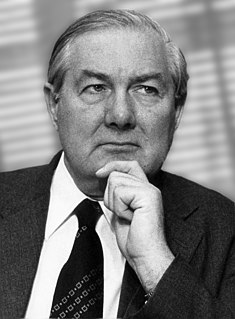A Quote by Rishi Sunak
Upon leaving the E.U., Britain will find itself with more opportunities for economic innovation than at any time in almost 50 years.
Related Quotes
For all the chatter that Britain has moved beyond class, recent studies have found that it determines the life chances of British people more today than at any point since the Second World War... A child born into a rich family in Britain will almost certainly live and die rich, while a child born into a poor family will almost certainly live and die poor.
Wherever we are, any time of night or day, our bosses, junk-mailers, our parents can get to us. Sociologists have actually found that in recent years Americans are working fewer hours than 50 years ago, but we feel as if we're working more. We have more and more time-saving devices, but sometimes, it seems, less and less time.
I have read a great deal of economic theory for over 50 years now, but have found only one economic "law" to which I can find NO exceptions: Where the State prevents a free market, by banning any form of goods or services, consumer demand will create a black market for those goods or services, at vastly higher prices. Can YOU think of a single exception to this law?
Here's the truth. The proposed top rate of income tax is not 50 per cent. It is 50 per cent plus 1.5 per cent national insurance paid by employees plus 13.3 per cent paid by employers. That's not 50 per cent. Two years from now, Britain will have the highest tax rate on earned income of any developed country.


































